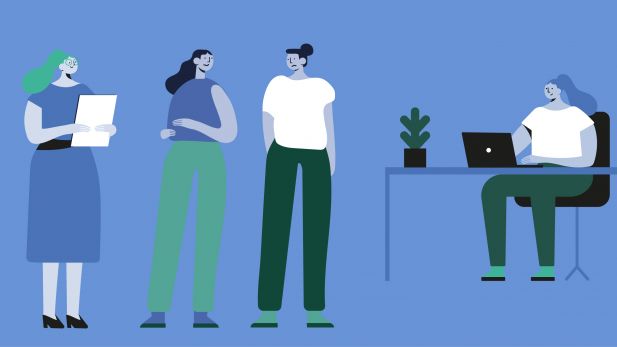Article series: Exploring equality challenges in the job market
It is International Women's Day on 8 March 2024, and we would like to highlight some of the challenges that women still face in the labour market.
How are things progressing? What actions are companies taking, and are they making an impact? You can explore these topics in this article series based on research from CBS.
New study: Being laid off affects women more severely than men

If you have ever tried losing your job, you know that it can have far-reaching consequences. In addition to losing a social network and something to get up for in the morning, being laid off may have long-term financial consequences. This has been documented in studies time and again since the 1990s.
Yet, nobody has examined whether job loss affects men and women differently – until now.
A new study, which has been published in the journal Labour Economics, shows that women experience a greater risk of unemployment and lower income in the first two years after losing their job compared to men.
Postdoc Anne Sophie Lassen from CBS and Ria Ivandić from London School of Economics are the researchers behind the study.
Women improve boards, but still not enough women are in top management in Denmark

There are not enough women in top management and boards.
Among large businesses in Denmark, only one in five board members is a woman, while women make up no more than 16% of board members in small and medium-sized enterprises.
This is despite the fact that all of our neighbouring countries, Norway, Sweden and Finland, have much more gender equal boards. By way of example, women on average make up 41% of board members in Norway.
In recent years we have, however, witnessed a greater awareness of this problem, which is a good thing, not just for gender equality in society at large, but also for the boards themselves, according to Marie Louise Mors, Professor at the Department of Strategy and Innovation at Copenhagen Business School, where, among other things, she conducts research on board dynamics and what happens when more women serve on boards.
Alongside her colleague Margarethe Wiersema, Professor of Strategy at University of California, Irvine, she has studied what happens to board dynamics when more women serve.
Professor at CBS: No equality for another 150 years

Only one in five businesses is handed down to daughters when passed on to the next generation. Even though the share of women has been increasing slightly over the past 40 years, it will take up to 150 years at the current rate to reach a fifty-fifty share Professor Kasper Meisner Nielsen.
"As an economist, I must emphasise that these numbers pose a problem. There’s nothing in the research that indicates that women are worse at running and managing a business. In other words, we’re ignoring almost half of the talent pool. Ultimately, this means that we’re missing out on growth opportunities.”
Female entrepreneurs face discrimination from their own employees

Female entrepreneurs just have to fight harder. This is a fact that your daughter or sister might want to take into consideration before pitching a start-up idea to banks or hiring their first employee.
New research from Copenhagen Business School shows that female founders do not only risk discrimination from external stakeholders like banks and investors, they may also have to face discrimination from the people on their own payroll.
“Our research shows that start-up employees are simply less willing to deliver an extra effort to a company run by Amanda & Chloe than by Matthew & Joe,” states Vera Rocha, Associate Professor at Copenhagen Business School.